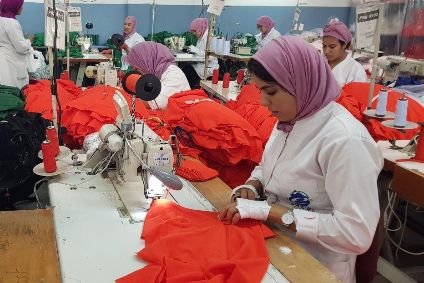
Countries – including key garment producer Bangladesh – need to put sound and resilient occupational safety and health (OSH) systems in place to minimise risks for workers in the event of future health emergencies, a new report by the International Labour Organization (ILO) says.
The report, ‘Anticipate, prepare and respond to crises. Invest now in resilient OSH systems’, examines risk prevention and management relating to the pandemic, and analyses other health and safety risks associated with the changing work arrangements arising from virus control measures.
The ILO says better national occupational safety and health policies, institutional and regulatory frameworks that are also integrated into crisis response, are needed. This will require investment in OSH infrastructure and integrating it into overall national crisis emergency preparedness and response plans, so that workers’ safety and health is protected, and the business continuity of enterprises is supported.
“The second wave of the pandemic is sweeping across Bangladesh as we mark World Day for Safety and Health at Work 2021,” says Tuomo Poutiainen, country director of ILO Bangladesh. “Many hundreds of thousands of workers continue to work hard to keep the society and the economy functioning. The pandemic has clearly shown the importance of OSH in creating safe working environment and its impact on public health. The occupational safety and health of all workers in all industries must be a national priority.
“The ILO has helped develop a national Covid-19 OSH guideline which was approved and published by the Ministry of Labour and Employment in Bangladesh. The safety of workers and business sustainability can both be secured if the measures recommended in this guideline are implemented across all industries and workplaces,” Poutiainen adds.
The report says small and micro-sized enterprises have often found it hard to meet official OSH requirements because many have lacked the resources to adapt to the threats posed by the pandemic.

US Tariffs are shifting - will you react or anticipate?
Don’t let policy changes catch you off guard. Stay proactive with real-time data and expert analysis.
By GlobalData“In Bangladesh, the government, employers and workers’ organisations must work together to continue strengthening of the OSH institutional and regulatory frameworks and OSH management system at national and workplace levels,” Poutiainen continues. “Investing in OSH systems will not only contribute towards responding to the current pandemic and recovering faster by avoiding further contagion, but will create resilience to face any future crises that might lie ahead. At the same time, it is important to establish urgent safety net programmes for low-wage workers, the self-employed, and workers and enterprises in all the hard-hit sectors including informal ones.”
The report outlines the critical roles played during the pandemic by occupational safety and health regulatory frameworks and institutions, compliance mechanisms, health and advisory services, data, research and training.
“There could be no clearer demonstration of the importance of a strong, resilient, occupational safety and health environment. Recovery and prevention will require better national policies, institutional and regulatory frameworks, properly integrated into crisis response frameworks,” adds ILO director-general, Guy Ryder.
According to the ILO report, in the global informal economy, many of the 1.6bn workers, especially in developing countries, have continued working despite lockdowns, restrictions on movement and social interaction, and other measures. This has put them at high risk of catching the virus, yet most do not have access to basic social protection, such as sick leave or sick pay.




